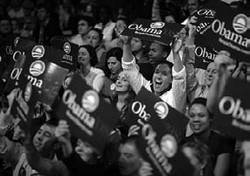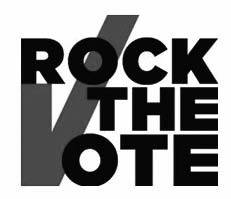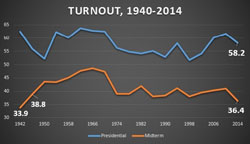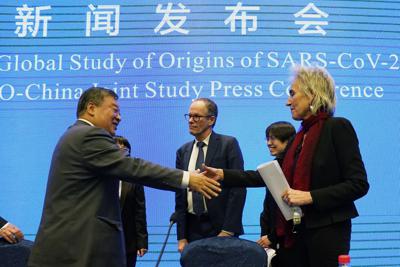One vote. That’s all that it takes for someone to not only change the outcome of any given election, but also determine which paths will be taken, what rules and regulations shall be determined and how secure a populous will be in the not too distant future, but somehow the youth voter is shrinking.
Conversely despite all of the importance held behind such a vote, many youths can’t help but wonder if that one vote can truly hold a vital significance. Renee Kelsey, a freshman, believes many youths don’t vote because of these mindsets. “Youths don’t vote in elections because they are lazy and don’t want to pay attention, or think it’s a waste of time to vote and that their vote won’t matter.”
Whereas freshman Lindsey Pieschl states that, although she plans on voting this upcoming election, she hadn’t felt the need to vote before.
Such behaviorism’s stated by Kelsey and felt by Pieschl are those that every youth in America face come election time. These connotations can primarily be attributed to a basic lack of trust and unity felt amongst young Americans with the political system, as compared to that of the collective, yet polarized, sides held by voters’ ages 50 and up.
With youth voting in most scenarios serving as the minority in polled opinion, it is no wonder that several find themselves asking the age old question, “Does my vote even matter?” It is this train of thought that has proved to be one of the key factors in deterring past youths from making their views known in the polls.
Another leading cause contributing to these inhibitions is education. The fact that voting is a privilege is something that has been drilled into every student’s head from elementary to high school. Unfortunately, that is about all that most can truly recall about voting. Pieschl states that, “We know that people died for that right and that we should utilize it, but we don’t really know how to go about it.”
This is where lack of education comes into play. By the time that students are granted the legalized right to vote at 18 they have not a clue what to do with such a power. “Youths should be more educated in high school about voting. If it isn’t taught at a young age we are going to be more reluctant to use it later,” says Kelsey.
According to Dr. Joseph Patten, Chair of Political Science Department, the true problem area in low turnouts with youth voting lies in high school drop outs not coming out to vote. Even though the dropouts aren’t lining up at the polls those youths pursuing higher education are actually on par with the older generations in the terms of voting turnout. “Education: that is what will ultimately determine whether someone will vote or not,” said Patten.
 He then goes on to point out another major factor hindering youths could be the registration requirements. “In some states, such as New Jersey, one must register 21 days in advance of the election. Young people have a very transient lifestyle, they move around a lot, and are not as settled as older demographics.” Patten goes on to suggest that having same day registration, like that in Minnesota or Maine, could potentially draw in a larger turnout amongst the youths.
He then goes on to point out another major factor hindering youths could be the registration requirements. “In some states, such as New Jersey, one must register 21 days in advance of the election. Young people have a very transient lifestyle, they move around a lot, and are not as settled as older demographics.” Patten goes on to suggest that having same day registration, like that in Minnesota or Maine, could potentially draw in a larger turnout amongst the youths.
Cali Carlin, a reporter for CBS, proposed in an April 8, 2008 article, that in order for politicians to draw in young Americans, they should “court the youth.” She suggests they go about such by using methods along the lines of taking advantage of media outlets, such as the Internet and social networking sites, to promote their causes. Other means suggested include holding events targeted specifically for youths, addressing the key issues for younger Americans and simply getting them involved in the causes themselves. It appears that politicians are taking Carlin’s advice.
As stated by Patten, young people have been voting more since the last two presidential elections, both of which involved the increased utilization of internet advertisements and social networking propaganda. “Voting turnout in 2008 of young people was higher than it’s been in 40 years,” Patten goes on to say that such high turnouts by young Americans is what ultimately thrust Obama into the presidency. Not only was that a factor, but this was the first time that young people have been able to singlehandedly move a national election and this determined its outcome.
With the youth finally taking a stand and not only finding their political voice but letting it be heard through the polls, perhaps the change that America has been craving can be finally be achieved, one vote at a time.
PHOTO COURTESY of rockthevote.com
PHOTO COURTESY of pubrecord.org




